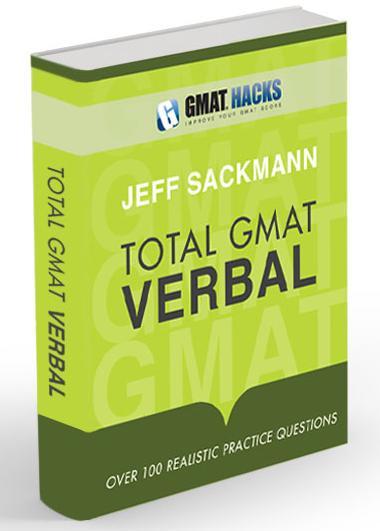
Bookshelf
|
|
Total GMAT Math Jeff's complete Quant guide, on sale now! |
|
|
Total GMAT Verbal Everything you need to ace GMAT Verbal! |
1,800 Practice Math Questions
Buy Jeff's books at Amazon.com

GMAT Official Guide, with IR
OG Math | OG Verbal
OG12 & Quant Rev solutions!
GMAT Question of the Day
Beginner's Guide to the GMAT
GMAT Hacks Affiliate Program

Recent Hacks

Categories
- General Study Tips
- Goals and Planning
- CAT Strategy
- The Mental Game
- GMAT Math Strategy
- GMAT Math Topics
- Mental Math
- Data Sufficiency
- Critical Reasoning
- Reading Comprehension
- Sentence Correction
- Analytical Writing Assessment
- Integrated Reasoning
- IR Explained
- Business School Admissions
- GMAT Prep Resources
- Practice Questions
- Total GMAT Math
- Total GMAT Verbal
- GMAT 111

Flashcards and GMAT Preparation
| You should follow me on Twitter. While you're at it, take a moment to subscribe to GMAT Hacks via RSS or Email. |
Last week, I pointed you to a set of GMAT idioms flashcards. While there are some things you must memorize in order to succeed on the GMAT, there aren't very many. For that reason, I don't generally recommend that you use flashcards as a major component in your studying.
Flashcards Are For Discrete Facts
For the most part, the purpose of flashcards is always the same. There is a collection of simple facts you must learn (like idioms or formulas), and you have to keep drilling those facts until you have them memorized. There are certainly situations in which flashcards are useful, such as vocabulary for the GRE, or verb conjugations when you learn a language.
There isn't much content like that on the GMAT. As I explained in the idioms article last week, there aren't that many patterns that are worth spending the time to drill. On the quantitative part of the test, there are a few formulas and ratios you have to memorize, but most of them will come up enough on practice questions.
Misusing Flashcards
I've had a few students who, out of habit, make a flashcard out of every little detail they need to learn. For instance, they might miss a question because they didn't know how to set up a certain type of mixture problem, and then put that question--perhaps up to the point where they didn't know the next step, on a flashcard, with the answer (or the next step) on the back.
This is a great way to learn how to do that problem. But of course, that problem won't be on the GMAT. If you have a problem proceeding through each step of a mixture question, you probably don't understand that question type well enough. Rather than constantly drilling that single step on that one problem, make sure you grasp the concept. (This is one great use for my Total GMAT Math, which has a chapter-long tutorial on every one of more than 40 GMAT Math-related topics.)
The Alternative to Flashcards
The GMAT doesn't test facts, it tests thinking skills and presumes knowledge of a few facts. The distinction is slight but crucial. Your test score will be based on how you do on 78 questions, not how many of the formulas you know.
For this reason, your study time should be spent with practice questions, not with discrete facts. I've written elsewhere about how to get the most out of practice questions: time yourself, review, redo, and repeat. Save your flashcards for certification exams.
About the author: Jeff Sackmann has written many GMAT preparation books, including the popular Total GMAT Math, Total GMAT Verbal, and GMAT 111. He has also created explanations for problems in The Official Guide, as well as 1,800 practice GMAT math questions.
 |
Total GMAT Verbal
The comprehensive guide to the GMAT Verbal section. Recognize, dissect, and master every question type
you'll face on the test. Everything you need, all in one place, including 100+ realistic practice questions. |